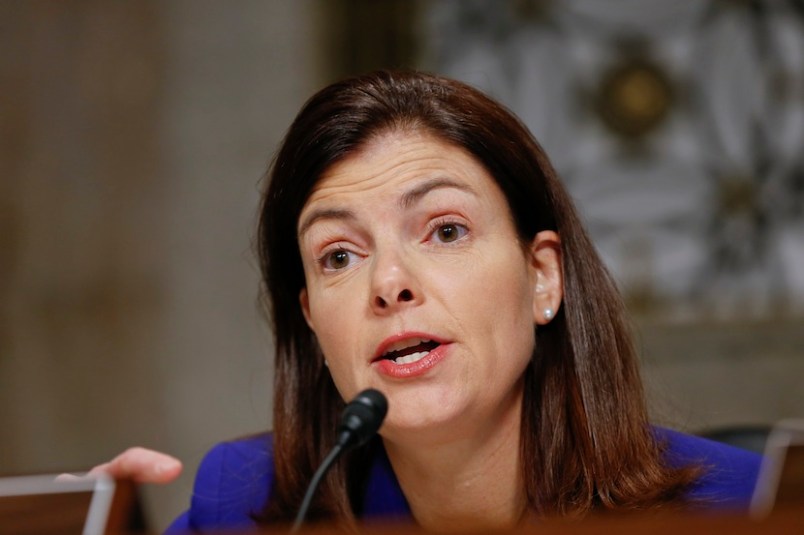Senate Republicans and the Chamber of Commerce are urging House Republicans to back off their threats of a government shutdown or debt default if President Barack Obama doesn’t agree to defund or delay Obamacare.
The calls intensified on Wednesday after House GOP leaders said they would move forward with a continuing resolution that defunds Obamacare at the potential risk of a government shutdown at the end of the month if Democrats refuse to blink. The White House has threatened to veto a bill that defunds Obamacare and Senate Democratic leaders say it’s a nonstarter.
“I don’t think shutting down the government is going to be productive,” Sen. Kelly Ayotte (R-NH) said Wednesday during an appearance on CNN. “I think we should make every effort we can to make sure we stop this law but I don’t believe they should shut down the government to do so. And I don’t think that is a strategy that is good for America.”
The Chamber of Commerce wrote a open letter to the House, in reference to the GOP’s stopgap funding bill, urging lawmakers not to risk a shutdown — or worse, a default on the national debt when the government reaches its borrowing limit in mid-October — warning of the economic harm that could result.
“It is not in the best interest of the U.S. business community or the American people to risk even a brief government shutdown that might trigger disruptive consequences or raise new policy uncertainties washing over the U.S. economy,” wrote R. Bruce Josten, a top lobbyist at the Chamber. “Likewise, the U.S. Chamber respectfully urges the House of Representatives to raise the debt ceiling in a timely manner and thus eliminate any question of threat to the full faith and credit of the United States government.”
House Republican leaders didn’t want a confrontation over Obamacare but were coerced into it by conservative lawmakers who refused to support their original stopgap measure to lock in low spending levels without the threat of a shutdown. Other Senate Republicans expressed similar concerns about risking a shutdown.
“I just think we know how this movie ends,” Sen. Lindsey Graham (R-SC) told TPM on Tuesday afternoon. “I don’t see us being able, in the Senate, to successfully carry the day. There are only 45 of us here. I don’t see the president, at the end of the day, agreeing to defund Obamacare. I just don’t see him agreeing to defund his signature issue. They had a campaign on it. I don’t think he’s going to say, ‘well, now, everything I said all those years — forget it, I’m willing to let it go.’ I just don’t see that being a good tactical choice.”
Sen. Susan Collins (R-ME) also called on Republicans to come up with a plan for “repealing or defunding Obamacare that did not involve a potential shutdown of government. That’s not going to be well-received by the American people, were it to occur.”
House leaders are aiming to pass the stopgap continuing resolution legislation by the end of this week. Senate Democrats are likely to strip out the provision defunding Obamacare. After that, it’s anybody’s guess how the debate will play out. If a deal can’t be reached, the lights will go out on Sept. 30 at midnight.






